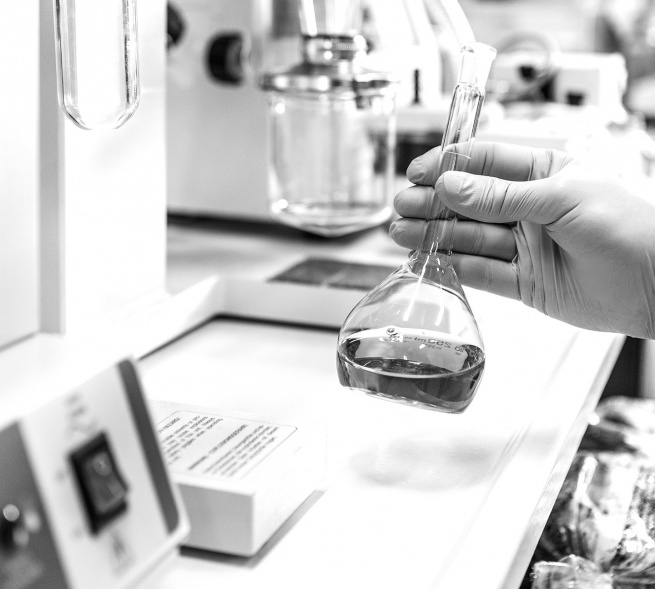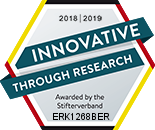
Since 1995, we have had two key R&D projects annually, which were of major significance for our company’s future development. We invest a significantamount of our annual turnover in R&D activities and receive funding from the German state and federal governments as well as international funding agencies.
Our R&D activities are always focused on trends that we anticipate on the energy market. Of high interest to us are optimised products and concepts for a low carbon economy, urbanisation, and globalisation.
 | As a result of our efforts, we were officially recognised as an innovative company and received the German “Innovative through research” award. |
The following points are a summary of our research activities and interests:
Over the past few decades ERK has commercialised many of its R&D projects, including evaporator flag tubes, parallel flow boiler design, bubbling fluidised bed combustion systems, and ERK Tube technology. We are now applying this expertise to the next generation of products.
Flue gas condensation
With flue gas condensation we can achieve maximum plant performance and minimal emissions. We integrate the recovered energy back into the plant cycle. ERK Tube technology enables us to design very compact and low-cost flue gas condensers. | Zeolite technology
Zeolites (hot stones) can be heated up to 400°C when exposed to water. The zeolites store the energy thermochemically. They can be used for energy storage, flue gas condensation, and gas turbine inlet air-cooling. Zeolite units are even mobile. |
Heat transfer surfaces with micro structures
ERK can drastically increase the heat transfer in shell & tube and plate heat exchangers by adding micro structures. These increase the heat exchange area and provide a large number of nuclei to enhance boiling and condensation processes. | Algae technology
Algae systems couple energy systems with the food, pharmaceutical and chemical industries. Growing algae requires CO2 and sunlight. Through the combination of boiler and algae systems the waste product CO2 can be used and algae can be sold. |
The DLR’s Institute of Solar Research was established by the German Aerospace Centre in 2011. Research and development in the field of concentrating solar systems are the core topics of the institute. State-of-the-art laboratories as well as industrial-scale testing facilities are available, providing scientists with an excellent, productive working environment. With the DLR’s concentrating solar power team ERK is working on the next generation of CSP technologies. Our particular focus are the steam generator systems.
The HTW Berlin is the largest university of applied sciences in Berlin. Research is a core task of HTW Berlin and a key success factor. Research activities connect the university with the professional world, scientific networks and companies, simultaneously guaranteeing a high level of quality in our study programmes and teaching. ERK has many master students from the HTW working on different fields, including container power plants and biomass gasification.
Fraunhofer IPK in Berlin stands for 40 years of excellence in production science. As an institute of the Fraunhofer-Gesellschaft, we tailor our work closely to the needs and requirements of our customers and partners. With its market orientation and high real-world value, our R&D helps to sharpen their long-term competitive edge. With the Fraunhofer Institute for Production Systems and Design Technology we have collaborated on the development of ERK’s new boiler design software.
The Technische Universität Dresden (TUD) is one of the largest “Technische Universitäten” in Germany and one of the leading and most dynamic universities in Germany. Since 2012 TUD is officially one of the “Universities of Excellence”. Jointly with the University of Dresden, Germany, we are doing research in the field of fouling prevention in thermal energy systems.
Situated in the heart of the Lausitz region, BTU combines outstanding international research with future-oriented teaching. It makes an important contribution to society, our culture and the economy through knowledge and technology transfer and with further education.Together with the University of Cottbus, Germany, we are working on the optimisation of our ERK Tube technology as well as condensation processes. Additionally, we have a joint PhD student.
Due to staff overlaps between ERK and the Wildau University of Applied Sciences due to lectureships, a large number of R&D projects were initiated at the University of Applied Sciences over time. These projects were not only of a cooperative and industrial kind, but were also more generally scientific, as the following list of sample topics shows:





